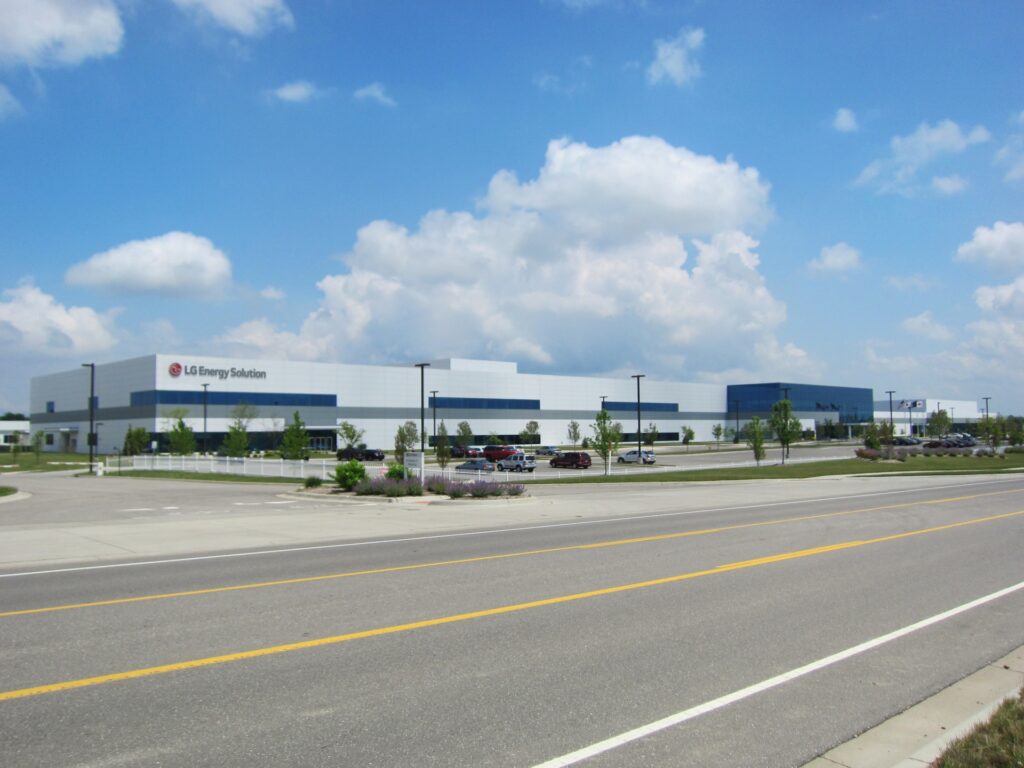Tesla has recently made headlines with a monumental $4.3 billion deal with LG Energy Solution (LGES) in South Korea. The agreement, which was reported by Reuters, signifies a strategic move by Tesla to secure a supply of lithium iron phosphate (LFP) batteries for its energy storage products. This deal is a significant shift for Tesla as the company aims to reduce its reliance on Chinese imports amidst escalating tariff pressures in the United States.
The contract, spanning from August 2027 to July 2030, will see LGES supplying LFP batteries from its factory in Michigan. Although LGES officially announced the agreement, they did not disclose Tesla as the buyer or specify the exact use of the batteries. However, sources indicate that the batteries will likely be utilized for energy storage systems rather than vehicles.
Tesla’s Powerwall and Megapack product lines have been driving demand for high-capacity batteries. The Megapack systems, specifically, have become integral components in battery energy storage system (BESS) projects worldwide, from Nevada and Hawaii to Japan, Australia, China, and Europe. Just this week, Tesla celebrated the production of its 1,000th Megapack at the Shanghai Megafactory, following a milestone last year of 10,000 units produced at its California facility in Lathrop.
LGES gained a significant advantage by starting production of LFP cells in Michigan in May, positioning itself as a pioneer in the U.S. LFP market, which is predominantly dominated by Chinese exporters. According to Samsung Securities analyst Cho Hyun-ryul, LGES is reaping the benefits of being a first-mover in this market.
Tesla’s Chief Financial Officer, Vaibhav Taneja, highlighted the adverse impact of tariffs on the company’s energy division. CEO Elon Musk echoed this sentiment during Tesla’s Q2 earnings call, emphasizing the challenges posed by tariffs and supply chain disruptions. Musk emphasized the immense scale of battery demand, a factor that is driving Tesla to forge strategic partnerships like the one with LGES.
While Tesla is making strides in establishing its own LFP cell manufacturing line in Nevada, the in-house production capacity will only meet a fraction of the surging demand. Collaborations with established players like LGES are crucial for Tesla to meet the growing needs of its energy storage products effectively.
In conclusion, Tesla’s partnership with LG Energy Solution marks a significant step towards securing a stable supply of LFP batteries for its energy storage solutions. This collaboration underscores Tesla’s commitment to innovation and sustainability in the rapidly evolving energy storage market. The field of artificial intelligence (AI) has been rapidly evolving in recent years, with advancements in machine learning, deep learning, and natural language processing. These technologies have the potential to transform industries ranging from healthcare to finance, and are increasingly being integrated into everyday products and services.
One of the most exciting developments in AI is the use of deep learning algorithms to train neural networks. These networks are modeled after the human brain and are capable of learning from large amounts of data to make predictions or decisions. Deep learning has been particularly successful in image and speech recognition, allowing computers to accurately identify objects in images or transcribe spoken words with high accuracy.
Another area of AI that is gaining traction is natural language processing (NLP), which enables computers to understand and generate human language. NLP algorithms have improved significantly in recent years, allowing for more nuanced interactions between humans and machines. This technology is being used in chatbots, virtual assistants, and translation services, making communication more efficient and accessible.
AI is also making waves in the healthcare industry, with applications ranging from diagnosis to personalized treatment plans. Machine learning algorithms can analyze medical images, genetic data, and patient records to identify patterns and make predictions about disease progression. This has the potential to revolutionize healthcare by enabling early detection of diseases and tailor-made treatments for individual patients.
In finance, AI is being used to analyze market trends, detect fraud, and automate trading strategies. Machine learning algorithms can process vast amounts of financial data in real-time to make informed decisions about investments or risk management. This has the potential to increase efficiency and accuracy in financial markets, while also reducing human error and bias.
Despite the tremendous potential of AI, there are also concerns about its impact on society. Issues such as job displacement, data privacy, and algorithmic bias have raised ethical questions about the widespread adoption of AI technologies. As AI becomes more integrated into our daily lives, it is crucial to address these challenges and ensure that the benefits of AI are shared equitably.
Overall, the field of artificial intelligence is poised for continued growth and innovation in the coming years. As researchers and developers continue to push the boundaries of what is possible with AI, we can expect to see even more transformative applications in a wide range of industries. By addressing ethical considerations and working towards responsible deployment of AI technologies, we can harness the power of AI to improve lives and drive positive change in the world.

